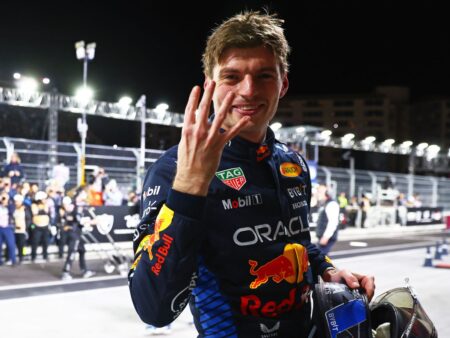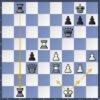In the hallowed, often tempestuous, landscape of Royal Portrush, Scottie Scheffler isn`t merely playing golf; he`s orchestrating a masterclass in calm dominance. Yet, as the golf world whispers about his `Tiger-like` form and seemingly inevitable march to victory at The Open Championship, a more ancient and formidable adversary emerges: the very links course itself.
The Northern Irish weather, famously fickle, provided Scheffler with a microcosm of The Open`s unpredictable nature during his second round. From radiant sunshine on the practice range to an abrupt downpour on the first tee, the conditions shifted with the capriciousness of a child`s mood. Most players might be rattled; Scheffler, however, merely birdied the first hole, setting the tone for a round that felt less like a competition and more like a coronation.
His performance after 36 holes was nothing short of breathtaking. Leading the field in approach shots, a consistent hallmark of his game, Scheffler seamlessly integrated a newfound putting prowess, draining over 132 feet of putts and carding an “easy” 64. His total of 10-under par established a commanding lead, causing rivals to shift from competitive aspiration to a form of bewildered admiration. His matter-of-fact reflections on his game—”I felt like I hit a few more fairways… and was able to hole some putts”—only underscore a genius so profound, it`s almost boringly efficient.
The Echoes of Greatness: Rivals Speak
When Shane Lowry, a past Open champion, was asked about being “on the fringes of contention” despite being only eight shots back, his chuckle spoke volumes. “Eight shots behind Scottie Scheffler isn`t in the fringes of contention the way he`s playing,” he quipped, encapsulating the sentiment pervading the field. Matt Fitzpatrick, Scheffler`s playing partner for the critical Saturday round, went further, offering the highest praise imaginable in modern golf:
“He`s an exceptional player. He`s World No. 1. We`re seeing Tiger-like stuff.”
The comparison to Tiger Woods, particularly one who once held a 36-hole lead at The Open and converted it into victory, speaks to the immense confidence Scheffler now radiates. Fitzpatrick, momentarily reveling in his own contention, even added with a laugh, “It must be fantastic for Scottie,” acknowledging the unique comfort Scheffler seems to find at the top.
Royal Portrush: The Ultimate Adversary
Yet, the narrative of inevitability finds its truest challenge not in another human competitor, but in the very soul of The Open Championship and the ancient links of Royal Portrush. This isn`t your average target golf; it`s a cerebral battle, where brute force often yields to subtle artistry. Distance, the modern game`s obsession, takes a back seat to strategic cunning. As Brian Harman, a previous Open champion who prioritized precision over power, eloquently stated, courses like Portrush “force you to be a little bit more creative… You don`t necessarily—you`re not forced to hit certain shots. You can kind of do it your own way.”
This is where the course`s true character shines, and where Scheffler faces his most significant test. Royal Portrush is a labyrinth of natural hazards: hidden pot bunkers ready to swallow misguided shots, treacherous crosswinds that turn precise calculations into educated guesses, and menacing “gores” that blur the line between playable ground and utter disaster. Every swing is a negotiation with the land, every decision a gamble with the elements.
The leaderboard, in its delightful diversity, reinforces this notion. From seasoned veterans to emerging talents, players with wildly different styles find success here. It`s a testament to The Open`s inclusive, unpredictable spirit, a tournament where no one expected Harman to hoist the Claret Jug in 2023. This is precisely why Scheffler`s lead, while formidable, is not yet a closed case.
The Weight of Expectation
The pressure, as Fitzpatrick astutely observed, now firmly rests on Scheffler. He carries the expectation not just to win, but to dominate. While his peers chase him across the rolling terrain, Scheffler`s most formidable rival may very well be The Open Championship itself—a major where, ironically, his career performance has been relatively modest. Its unique demands, the psychological toll of battling both the field and the elements, and the sheer unpredictability of links golf make it arguably the toughest major to hold a lead in.
All eyes remain fixed on Scheffler. Should he endure the capricious winds, navigate the treacherous bunkers, and master the strategic demands of Royal Portrush, his “Tiger-like” comparisons will cement into undeniable reality. But as the weekend dawns, with two more rounds to play and a course designed to test the very limits of a golfer`s patience and skill, only one thing is certain: there`s still a hell of a long way to go.











